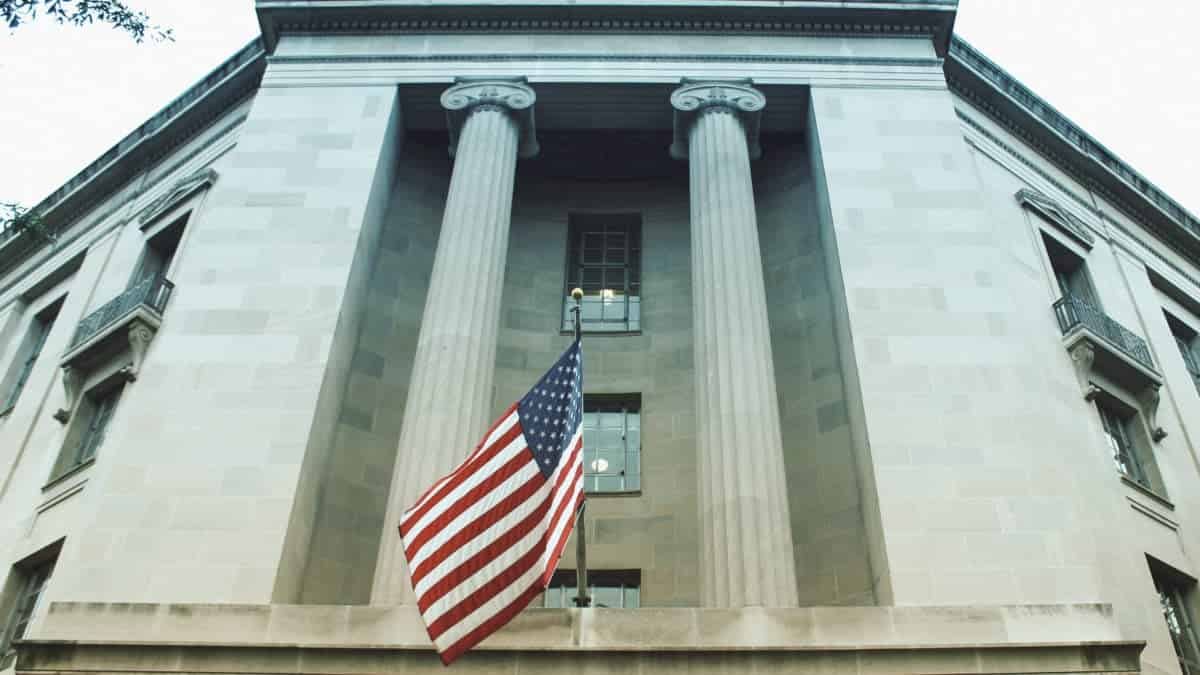DOJ shutters crypto crime fighting division, calls unit a 'reckless strategy' from Biden's admin: Fortune
Quick Take The U.S. Department of Justice closed its crypto enforcement task force to align with President Donald Trump’s relaxed approach to digital asset regulation. Dubbed the National Cryptocurrency Enforcement Unit (NCET), the office was involved in cases like Tornado Cash and Avraham Eisenberg’s $100 million Mango Markets exploit.

Todd Blanche, U.S. Deputy Attorney General and Trump’s defense lawyer in 2024, issued a memo directing the immediate shutdown of the DOJ’s crypto litigation division as authorities adopt a friendlier roadmap for digital asset oversight, according to Fortune on Tuesday.
The four-page notice issued Monday stressed that crypto regulation was outside the DOJ’s remit. Blanche wrote that the previous government under former President Joe Biden leveraged the Justice Department in a “reckless strategy” to police the blockchain industry via enforcement action. The Deputy AG told staffers to instead prioritize investigating individual bad actors and criminals targeting crypto investors.
Biden’s administration formed NCET in 2021 as a collaborative legal strike team, comprised of U.S. Attorneys from the DOJ's cybercrime and money laundering offices. NCET’s department worked on several landmark cases like crypto mixer Tornado Cash and the $100 million Mango Markets exploit executed by Avraham Eisenberg. Eisenberg was convicted on fraud charges last year, while the U.S. Treasury lifted sanctions on Tornado Cash following a court ruling.
Blanche’s directive comes as federal agencies change courses on cryptocurrency regulation. In February, the Securities and Exchange Commission — under acting chair Mark T. Uyeda — announced plans to scale down the watchdog’s special crypto enforcement unit . Jorge Tenreiro, the SEC’s top digital asset litigator, was reassigned to a department tasked with maintaining computer systems as part of the overhaul.
The move signalled a new tune within agencies as Trump’s return as the first pro-crypto President promised more flexible oversight. During his campaign trail, the Republican leader vowed to position the U.S. as a global crypto capital. In March, Trump signed an executive order to establish a Bitcoin reserve and previously instructed all relevant regulators to develop clear digital asset market rules. Two stablecoin bills have advanced from that effort. Many expect one of those bills to hit Trump’s table in the White House by the end of June, although the drafts will likely face several markups in the coming weeks.
Disclaimer: The content of this article solely reflects the author's opinion and does not represent the platform in any capacity. This article is not intended to serve as a reference for making investment decisions.
You may also like
European Blockchain Sandbox Selects Web3 Companies for Third Cohort, Including Privado ID
“The selected use cases span all EU/EEA regions and represent a wide range of industry sectors and regulatory topics,” the European Blockchain Sandbox says.

Is Dogecoin About to Explode? Analysts Say a 3-Month Bull Run May Be Starting
Dogecoin (DOGE) could rally during the next 3 months and surge to $0.75 according to this analyst's predictions.

Solana (SOL) Gains 13% In One Week But Stalls Below Key $136 Resistance
Solana shows short-term strength with a 13% gain, yet resistance at $136 and weakening trend signals suggest a possible pause or reversal.

Fartcoin Whale Doubles Down, Loses Another $297K
A whale investor spent $1.98M on Fartcoin after prior $701K loss—now down $297K again. Will this risky bet ever pay off?Risky Move: Whale Reinvests in Fartcoin After Big LossMemecoin Madness: High Risk, High VolatilityWill the Gamble Pay Off?

